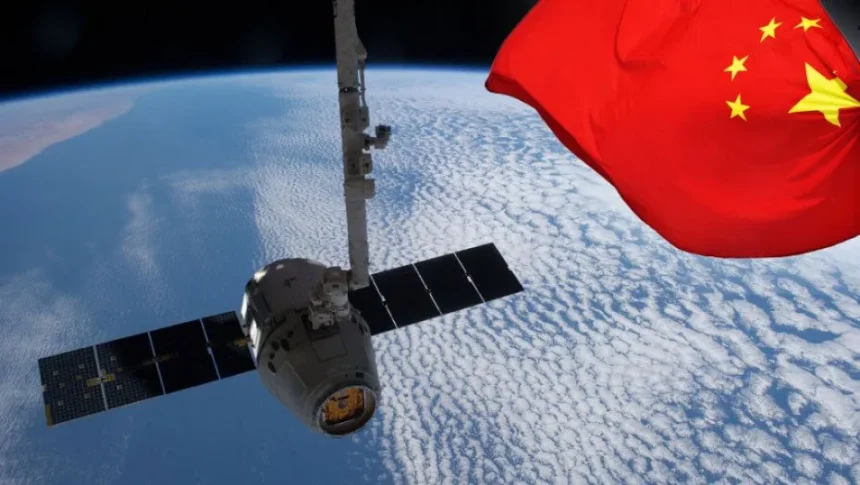A new frontier in satellite deployment has opened, and it is already unsettling the balance of space geopolitics. A U.S. startup, SpinLaunch, has begun testing a radical method to send flat, disc-shaped “pancake satellites” into orbit using a giant centrifugal cannon—bypassing traditional rocket launches.
China has raised strong concerns, warning that such rapid-fire launches could disrupt global security and destabilize cooperation in outer space.
The technology behind SpinLaunch relies on a “kinetic launch system,” where satellites are spun at hypersonic speeds—more than 5,000 miles per hour—before being released into orbit. Unlike rockets that burn tons of fuel, this method drastically reduces costs and carbon emissions.
Each satellite, roughly the size of a large table top, is compact, lightweight, and can be stacked in clusters. This means dozens can be launched in quick succession, allowing near-instant deployment for communication, surveillance, or data transfer.
Industry analysts say this innovation could reshape the economics of satellite launches, making space more accessible to private companies, universities, and governments with limited budgets.
China’s Warning Bells
China has sounded what it calls a “full-scale alert” over the U.S. move, pointing to the dual-use nature of such technology. While SpinLaunch emphasizes commercial uses such as broadband internet, earth monitoring, and climate data, critics fear that the same satellites could carry out intelligence or even military functions.
For Beijing, the prospect of hundreds of U.S.-backed satellites suddenly appearing above its territory with minimal launch warning has raised alarms. The incident underscores how quickly civilian innovations can blur into defense applications in the race for orbital dominance.
SpinLaunch insists its system is about sustainability and efficiency. Unlike conventional rockets that spew tons of emissions, the spinning-cannon system reduces fuel dependency and launch costs significantly.
Yet the promise comes with peril. With already thousands of satellites orbiting the Earth, rapid deployments at scale could heighten the risk of collisions and space debris. The world still lacks binding international regulations on satellite traffic management, leaving room for accidents—or deliberate misuse.
Why it Matters
For countries in the Global South, the development presents both opportunity and concern. Cheaper launches could expand access to satellite internet, remote sensing for agriculture, and disaster monitoring. But without global governance, smaller nations risk being bystanders in a new space race dominated by the U.S. and China.
What is unfolding is not just a technological breakthrough but a shift in space geopolitics. If left unchecked, the sky could become the next contested battlefield.
SpinLaunch’s “pancake satellites” represent ingenuity at its finest—fast, affordable, and potentially transformative. But as history shows, every leap in technology carries unintended consequences. Unless international norms catch up, the race to dominate orbit could outpace the ability to keep space safe, open, and sustainable.
Talking Points
SpinLaunch is selling its technology as “green” and “sustainable” compared to rockets. But does a flood of disposable satellites really count as sustainable?
Space junk is already a massive problem. In the rush to innovate, the world may simply be swapping one ecological crisis for another—this time in orbit.
If satellite internet becomes dominated by U.S. private firms, Africa’s entire digital economy could rest on infrastructure it doesn’t control.
From fintech to e-health to education platforms, all could be vulnerable to foreign policy shifts or corporate interests. Shouldn’t Africa be demanding a seat at the table of orbital governance?
The new space race is not about planting flags on the Moon—it’s about colonizing orbits. Whoever owns the skies owns the flow of information on Earth. If African policymakers don’t wake up, we may be replaying the colonial script, only this time with satellites instead of ships.





